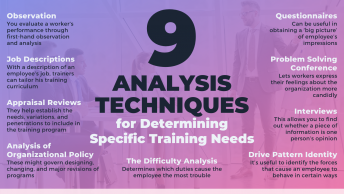Your children are your most valuable asset, and you want the peace of mind knowing you’ve left them in the best hands possible if yours are not available. Selecting a child care provider is more than picking out a day care. Day care centers have their own advantages, but you must first decide what you expect from a child care situation and base all decisions around your expectations and budget.
Assess Your Situation
Your children’s ages have much to do with your decision about childcare. Young infants have little need for socialization and require a great deal of hands on care. Older children strongly benefit from socialization and structure of some kind although there is great debate as the value of education at the expense of play. A single child gives you many options for childcare while multiple children needing care might be better served by a single provider to take advantage of what amounts to a bulk discount.
Consider Your Desires
What you want for your children is obviously the best, but “the best” can vary by family and your particular child’s temperament. For example, an infant with special needs or extreme fussiness will likely get more personalized attention from a nanny or babysitter dedicated to only one or very few children. A child struggling with social skills or speech would do well to be surrounded by a structured preschool environment that provides discipline, security and motivation.
Do you want your child to receive individual care or to be in the company of others? Are there an acceptable number of children a caretaker should be responsible for at a given time? Would you prefer your child to be in a group of his peers or in a group that includes children of various ages?
Make a list or at least spend a few minutes thinking about what would be an ideal childcare situation. You may find that staying home with your child is the ideal, but if that option is not available for financial or other reasons, you’ll want to arrange the next best scenario.
Research Programs in Your Area
To research childcare programs, your best source of information will be others using the service, or parents. Find parents with children your age by networking within your neighborhood, at community areas such as parks and swimming pools, and religious centers. You might even visit with other parents at the school or activities of older children already in school.
Find parents and ask them about their child care arrangements. Most parents are very willing to discuss their preferences and experiences in various centers or with services. Parents understand the value of references and experience and will share what information they do have giving you an idea at least of what some centers have to offer.
The websites of the centers or services and review websites that compile information about multiple providers in an area will give you a lot of information as well about preschool and daycare centers. But if you’re looking for a more personalized child care arrangement, you will be almost entirely dependent on more traditional means of knowledge including personal references, interviews and resumes.
Use a Trial Period
In any arrangement, always include a trial period. Your child, depending on age, might cry in even the best scenario as you are departing, but quality reports, phone calls during the day and cameras or drop-in visits can give you a better idea of how your child’s day is going and if his needs are being met in the current arrangement. Older children can share their own opinions, but always base your assessment on your own observations.
Use this trial period to be sure your needs are being met as well. If your child care provider doesn’t give you the support or information you feel you need concerning your child’s day, consider finding a new child care option. As a parent you need information to make decisions for your child. And you also need to know that your decisions are the basis of your child’s day – even when you’re not present.












